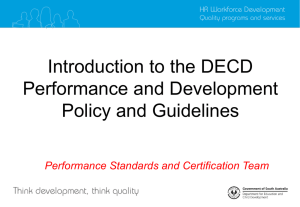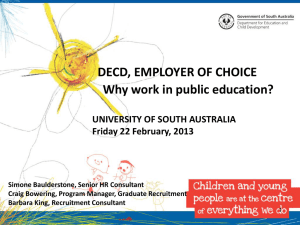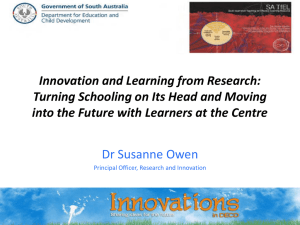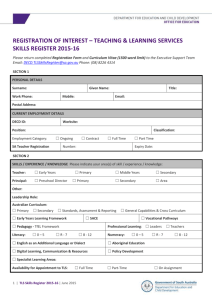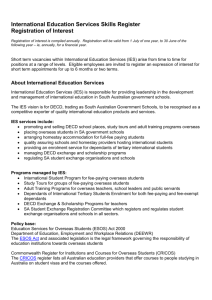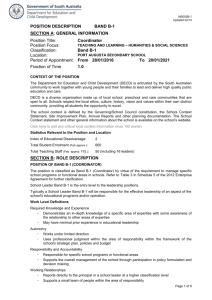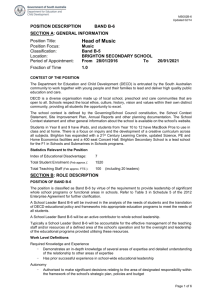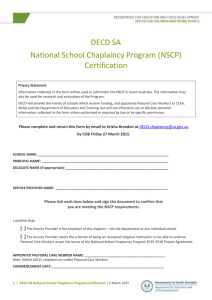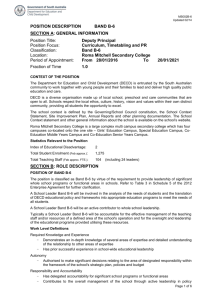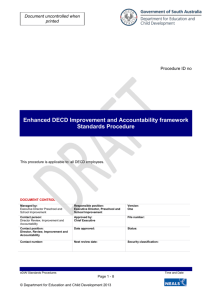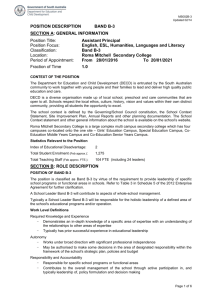DECD Innovations Overview
advertisement
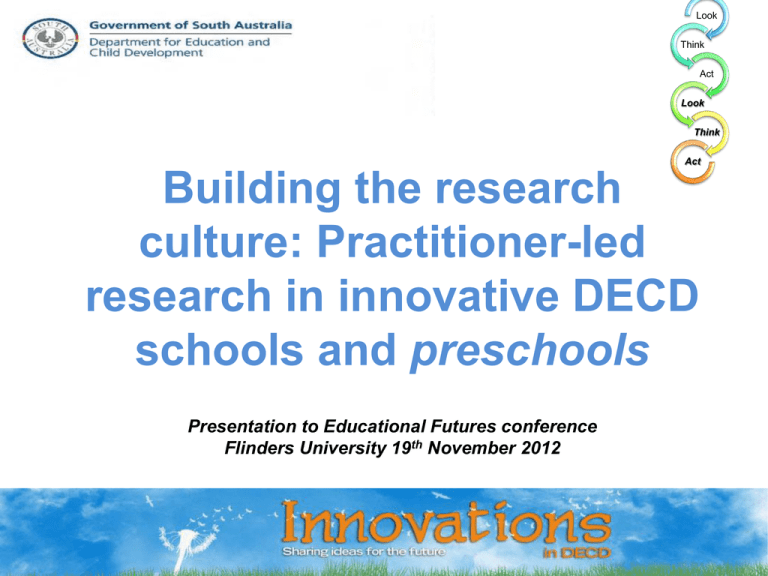
Look Think Act Look Think Act Building the research culture: Practitioner-led research in innovative DECD schools and preschools Presentation to Educational Futures conference Flinders University 19th November 2012 • Opening comments: • Prospect PS: • Birdwood HS: • Woodville Gdns B-7: • Alberton PS: • Discussion: practitioner research in Dr Susanne Owen (DECD) Marg Clark (15 mins) Kristina Vonow, Steve Hicks (15 mins) Graham Wegner, Frank Cairns (15 mins) Andrew Plastow (15 mins) innovative schools Innovation definitions Innovation is about the ‘creation and implementation of new processes, products, services and methods of delivery which result in significant improvements in the efficiency, effectiveness or quality of outcomes (and) the application of new ideas to produce better outcomes’ (ANAO, 2009:1) Innovation may occur ‘through continuous improvement processes, adapting ideas from elsewhere or futures-oriented and transformative change’ (DECD, 2010:1) DECD & Innovation DECD is an invited education system in the OECD Innovative Learning Environments project (ILE) 26 participating countries in ILE project including Austria, Chile, Denmark, Finland, Hungary, Israel, Korea, Finland, Mexico (2 systems), Norway, Portugal, Sweden, Slovenia, Spain, Germany, US (Ohio), NZ, Switzerland (2 systems), Victoria & ACT (Australia) 7 SA sites have met international criteria for innovation (150 sites involved) but many other schools and preschools are equally innovative ASMS selected as one of 35 cases for detailed academic research 2011-2012: many other DECD schools/preschools involved in innovation DECD strategic plan highlights innovation & an increasing focus on building a systems culture for innovation across the department Workshop Title 6 Educational innovation models and characteristics RADICAL INNOVATION INCREMENTAL INNOVATION • • Minor modifications to existing product • Swims with the tide Starts with the present & works forward • • Significant breakthrough/ major shift in design • Swims against the tide Starts with the future and works backwards School Improvement? LEARNERS New groupings, targeted for specific groups, learners define goals TEACHERS Teams & multidisciplinary teachers, coach/facilitator role, other adults/peers Transformation? CONTENT New foci for content, 21C competencies, values, co-constructed curricula RESOURCES Innovative uses of infrastructure, space, community and technology ORGANISATION Innovative approaches to scheduling, groupings, pedagogies, assessment & guidance Innovation Characteristics • • • • • . • Some risk-taking but also an intentional departure from traditional approaches to better meet the needs of learners : be truly innovative. Settings providing optimal learning and development in cognitive, meta-cognitive and socio-emotional terms. Be aimed at addressing the contemporary learning and educational needs of all learners. Not rely on the vision, understanding or personality of a single or small group of innovators. Rather, the innovation must be sustainable, supported by a broad organisational foundation. Involve formal or informal evaluation of practice for the purpose of promoting continual improvement. DECD Practitioner grants • Relationship between pedagogy, engagement and) literacy (Open Access College) • Executive function: school-based learning experiences shaping working memory, inhibitory control and cognitive flexibility (Bridgewater PS) • Game based learning (Woodville Gardens B-7) • Learning spaces, learning advisor beliefs and impact on student wellbeing and engagement (Blair Athol B-7) • Reconceptualised learning environments, changes to perceptions and development of pedagogy embracing place (Alberton PS) • Mentoring to build teacher technology skills (Glenunga International High School) • Personalised learning in digital/creative environment and impact on staff and student engagement and wellbeing (Prospect PS) • Student mentoring in building leadership skills for business (Mypolonga PS) • Pedagogical practices having positive impact in Maths (Mylor PS) Look Action Research Think Act Look Think Teacher researchers in a systematic way investigate specific aspects of their own practices. They plan and collect data (look), analyse and reflect (think), before taking action (act) and again repeating the cycle, whilst also sharing results to inform others. Act Discussion What are the issues related to having students involved as researchers? How difficult is it to refine the research question and make the research process manageable? What positives have happened? What difficulties are there in finding tools and measuring aspects beyond student achievement? Are there challenges in ensuring ownership of the data beyond the researchers in the school ? Dr Susanne Owen Principal Officer, Research & Innovation Leader: ILE project & DECD innovation E: susanne.owen@sa.gov.au Ph 8226 3677
